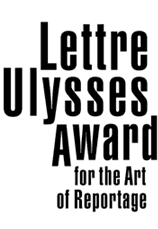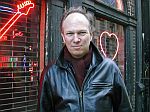
Ian Buruma
 Ian Buruma was born in 1951 in The Hague, Netherlands, to a Dutch father and an English mother. Educated in Holland and Japan, he decided to study Chinese literature and history in the 1970s. Afterwards, he focused his attention on Japan. Ian Buruma spent six years living in Tokyo, first as a film student at Nihon University College of Arts, then as a photographer, actor, dancer, translator, film reviewer and journalist. In the 1980s he spent seven years in Hong Kong. During these years he traveled almost everywhere in Asia.
Ian Buruma was born in 1951 in The Hague, Netherlands, to a Dutch father and an English mother. Educated in Holland and Japan, he decided to study Chinese literature and history in the 1970s. Afterwards, he focused his attention on Japan. Ian Buruma spent six years living in Tokyo, first as a film student at Nihon University College of Arts, then as a photographer, actor, dancer, translator, film reviewer and journalist. In the 1980s he spent seven years in Hong Kong. During these years he traveled almost everywhere in Asia.Ian Buruma writes political and cultural commentary on Asia for several western publications, including the New York Times, New York Review of Books (article), Newsweek, Le Monde, Lettre International ("Kotau vor dem Drachenthron") and Die Zeit. His writing focuses on, but is not limited to Japan, Korea, Myanmar and the Philippines and addresses readers who are "curious, reasonably well-informed, but not specialists in Asian affairs."
Among his non-fiction works are Behind the Mask: On Sexual Demons, Sacred Mothers, Transvestites, Gangsters, Drifters, and Other Japanese Cultural Heroes (1984), God’s Dust: A Modern Asian Journey (1989), and The Wages of Guilt: Memories of War in Germany and in Japan (1994). Voltaire’s Coconuts (1999) examines Europe’s relationship to England and its culture (excerpt). The Missionary and the Libertine: Love and War in East and West, a collection of essays revolving around the idea of nationhood, was published in 2000 (an interview in Atlantic Monthly). His last publication, Bad Elements (2001) is a work on Chinese dissidents.
Ian Buruma has been a fellow at the Woodrow Wilson Institute for the Humanities in Washington, D.C. and at St. Anthony’s College in Oxford. He has taught at several universities including Harvard, Princeton and the University of Groningen. Since 2003 Buruma has been Luce Professor of Democracy, Human Rights & Journalism at Bard College, New York. He lives in London.
